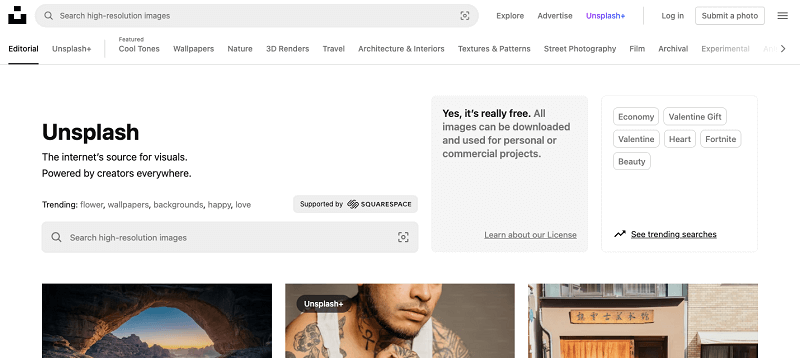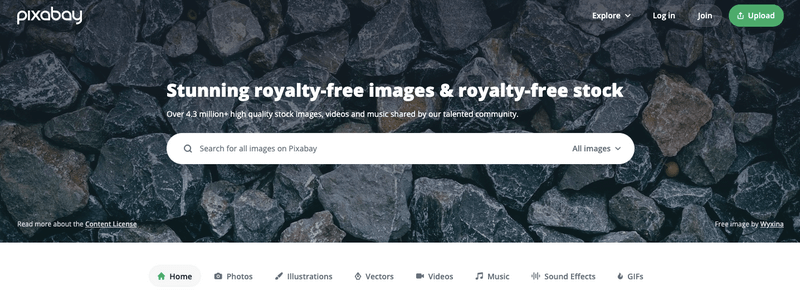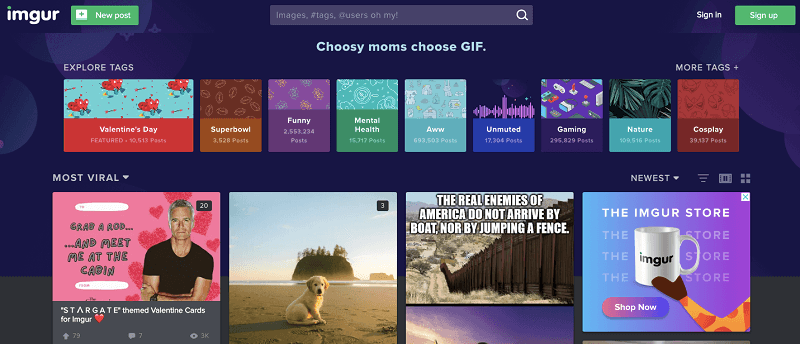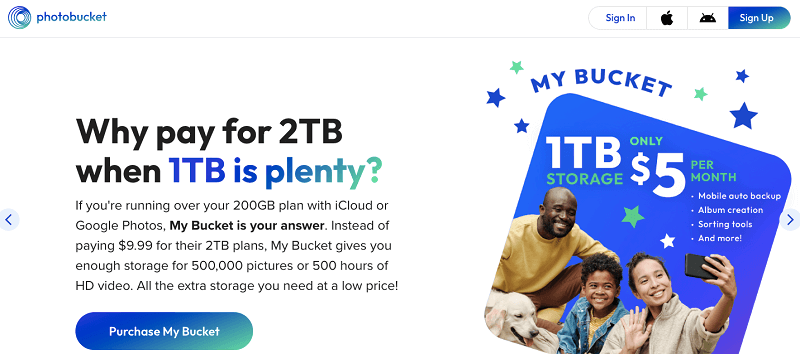Image sharing sites allow you to easily upload, organize and share photos online. With so many options available, it can be overwhelming to determine the best Image sharing sites for your needs in 2024.
This guide will explain top 15 free image sharing sites, highlighting the key features, pros, cons and use cases of each to help you choose the right one.
Whether you’re a professional photographer, casual user or social media influencer, read on to discover the ideal image hosts to showcase your photos.
Table of Contents
List of 15 High DA Free Image Sharing Sites For 2024

| Site Name | DA | Monthly Traffic |
|---|---|---|
| 100 | 3.1B | |
| 100 | 941.5M | |
| Unsplash | 97 | 70.9M |
| Pixabay | 91 | 48.2M |
| Google Photos | 100 | 7.2M |
| Flickr | 83 | 10.6M |
| Shutterfly | 82 | 17.3M |
| Dropbox | 82 | 10.1M |
| Imgur | 70 | 2.1M |
| 500PX | 63 | 720.7K |
| Imgbb | 61 | 976.9K |
| Amazon Photos | 100 | 262.8K |
| Postimage | 56 | 222.6K |
| SmugMug | 52 | 231.2K |
| PhotoBucket | 42 | 107.6K |
1. Instagram

With over 1.4 billion monthly active users, Instagram is one of the top social networks for sharing photos and short videos.
You can build followers, use filters and editing tools, share Stories that disappear after 24 hours, and go live.
Features
- Photo Filter and Editor
- Paid Promotions and Insights
- Hashtags to reach more audiences
- Stories and Stickers
- Reels
Pros
- Huge active user base
- Influencer opportunities
- Insights for business profiles
Cons
- Following limit is 7500
- Link restrictions
Instagram is ideal for individuals looking to share glimpses of their life and creatives wanting to build their personal brand. Businesses can create profiles to engage audiences and promote their brand visually.
2. Pinterest

Founded in 2010, Pinterest is a visual discovery engine that allows users to save and organize images, GIFs and videos into themed collections known as “boards”.
With over 482 million monthly active users, it is especially popular for showcasing recipes, fashion, travel, DIY projects and more.
Features
- Visual discovery engine – Oriented around discovering visual content
- Boards for saving and organizing – Custom curation via themed boards
- Pin embedding – Enables driving referral traffic
- Rich pins – Immersive experience with more metadata
- Audience insights – Data-driven content strategy and targeting
Pros
- Massive niche audience
- Personalization features
- Direct messaging
Cons
- Minimal protection against copyright infringement
- Female-dominated user base
Best for individuals and brands looking to drive targeted traffic by sharing visual content aligned with their niche. The large user base presents opportunities to expand reach.
3. Unsplash

Unsplash provides high-quality, royalty-free stock photos that anyone can use. It has a collection of over 3 million curated photos that are free to download and use, even for commercial purposes. The photos are contributed by a community of photographers and creators.
Features
- Huge library of 3+ million free high-resolution photos
- New photos added daily by contributors
- Powerful search to find relevant images quickly
- Option to like and collect photos for future use
- Stats and analytics for photographers to track usage
- iOS app to access photos on the go
Pros
- Completely free to use, no attribution required
- Great variety of high-quality photos for all needs
- Active community of photographers adding new content
- Easy to search for and download images
- Photos can be used for both personal and commercial projects
Cons
- Limited control over image types, styles and availability.
Overall, Unsplash is an excellent resource for finding free stock photos without any licensing hassles. The large collection and convenient access make it useful for individuals and businesses alike. For photographers, it offers a great platform for exposure and networking opportunities.
4. Pixabay

Pixabay is an image site where photographers can share high-quality, copyright-free photos for others to download and use for free. It offers an extensive collection of over 4.6 million stock photos, videos, and music contributed by its talented community.
Features
- Share high-quality, copyright-free photos
- Images can be used for free, even commercially
- Stringent quality control process
- Vibrant community of photographers
Pros
- Exposure and recognition for photographers
- Litmus test for photo quality
- More uploads allowed for high-quality contributions
Cons
- Must give up rights to images
- Photos must meet quality guidelines
- No bulk uploads
Overall, Pixabay is a great platform for photographers to share quality images and gain exposure.
5. Google Photos

As part of Google’s ecosystem, Google Photos provides a seamless way to store a lifetime’s worth of media.
It offers 15GB free storage for high resolution photos and videos when you sign up for a free Google account and uses AI to organize your media and enables easy sharing.
Features
- Powerful search with image recognition
- Built-in editing tools
- Auto-generated albums and movies
- Shared libraries for easy collaboration
- Google Lens integration for object recognition
Pros
- Up to 15GB free storage, Unlimited (Paid)
- Intelligent auto-tagging by location, date, and people
- Syncing across devices
Cons
- Storage space is shared with Gmail and Drive
Overall, Google Photos makes organizing and sharing your photos easy with smart features, but you’ll need to upgrade for more storage space.
6. Flickr

Flickr is one of the largest photo sharing communities online with over 112 million users. Founded in 2004, it offers 1 terabyte of free storage and advanced features like geo-tagging, EXIF data, stats and reporting.
Features
- In-depth statistics on views, downloads, comments and more for each image.
- Customizable galleries to showcase photos in creative layouts.
- Create automated slideshows with transitions and music.
- Easy embedding of Flickr photos into blogs and websites.
- Free and paid account options depending on needs.
- Public archives from museums, libraries, etc featured on Flickr.
Pros
- Millions of users
- Powerful editing tools
- Customizable privacy settings
- Share via RSS, email, etc.
Cons
- Only Safe (public or non-public) content allowed.
- Maximum of 50 non-public photos or videos.
- 1,000 item upload limit.
- Yahoo account required to sign up
In summary, Flickr offers a large photo-sharing community, powerful tools, and generous free storage, but has limits on non-public content.
7. Shutterfly

Shutterfly offers unlimited photo storage for customers who maintain an active account by making at least one purchase every 18 months. Customers can upload photos from any device and organize them into albums.
Features
- Unlimited storage for all photos
- Ability to upload photos from any device
- Options to add photos from Facebook, Instagram, Google Photos
- Easy organization with albums and tagging
- Friendly reminders about account activity
Pros
- Easy to keep account active with a purchase every 18 months
- Convenient uploading from multiple sources
- Unlimited free photo storage
Cons
- Must make a purchase every 18 months to maintain account
- Projects cannot be downloaded or saved if account becomes inactive
Shutterfly’s unlimited photo storage is a great value for customers who want ample space for photos and convenient uploading.
The service makes it simple to keep your account active. Just remember to place an order every 18 months to continue enjoying unlimited storage and access to your photos.
8. Dropbox

Dropbox is a popular cloud storage and file sharing service used by over 700 million registered users globally. It allows users to store, access, and share files and folders from anywhere.
Features
- Remotely delete your files on stolen devices
- View any file without installing extra software
- File locking with Password Protection
Pros
- Auto syncing across devices
- Easily share files by links
- Advanced collaboration features
Cons
- Just 2GB free storage, paid subscription required for more storage and features
For users focused on accessing files across multiple devices and sharing collaboratively, Dropbox delivers a secure hosted solution.
9. Imgur

Founded in 2009, Imgur is a top image hosting and sharing community with over 300 million monthly users. You can upload anonymously or join the community feed to share memes, GIFs and viral images.
Features
- Share images on one click
- Convert from video to gif
- Imgur community
- Meme Templates
- Supports JPEG, PNG, GIF, APNG, TIFF, MOV , MP4 Formats
Pros
- Fast and easy upload
- User-friendly interface
- Unlimited free storage
Cons
- Uploads limited to 50 images per hour
With its straightforward tools and engagement features, Imgur makes sharing fun and effortless. The unlimited image storage capability also makes it ideal for securely archiving your photos.
10. 500PX

500px is an international community of over 18 million photographers and creatives. Members can share high resolution images, participate in photo challenges, receive feedback and gain global exposure.
Features
- Option to license images through 500px and earn from sales.
- Photo contests and daily quests to participate in for recognition.
- Join interest-based groups to share images, connect and get feedback.
- Data insights into popular styles, searches and licensing trends.
- Profile badges – Badges recognizing achievements as a photographer on 500px.
- An algorithmic, personalized feed highlighting top photos, editors’ picks and more.
Pros
- Licensing opportunities
- Interactive features
- Advanced analytics
Cons
- Free version limited to 7 photo uploads per week
Overall, 500px offers photographers worldwide exposure, licensing opportunities, contests and community feedback to improve skills and earn money.
11. ImgBB

Offering free accounts with easy drag and drop uploading, ImgBB focuses on making image sharing quick and simple for personal and business users.
Features
- Sign up with Facebook/Twitter
- Get direct image links
- Easy URL conversion
Pros
- Drag and drop uploading
- Build free backlinks to your website
- Create photo albums
Cons
- 32MB file size limit
For hassle-free storage and sharing of small to medium-sized photos collections, ImgBB provides a streamlined solution. The shareable links make it easy to embed photos in blogs and social posts.
12. Amazon Photos

Amazon Photos is a cloud storage service that allows Prime members to store an unlimited number of full-resolution photos as well as 5GB of video.
For non-Prime customers, the storage allowance is 5GB for both photos and videos.
Once photos and videos are uploaded to Amazon Photos, they can be securely accessed from various devices like Fire TV, Echo Show, and Fire tablets. The service makes it easy to backup photos from your devices and then delete them to free up space, since the originals are safely stored in the cloud.
Features
- Share photos securely
- Create custom photo prints, gifts, and keepsakes
- Access photos on Fire TV, Echo Show, Fire tablets, and other devices
- Upload using easy drag-and-drop
- Desktop app for Windows and Mac
Pros
- Unlimited photo storage with Prime
- Desktop and mobile apps for easy uploads
Cons
- 5GB free limit only
- Unlimited storage requires Prime membership
Amazon Photos offers convenient unlimited full-resolution photo storage for Prime members along with easy desktop and mobile access. Start your 30-day free Prime trial today and see what unlimited storage can do for preserving your pictorial legacy.
13. Postimage

Postimage is a free image hosting service founded in 2004. It allows users to easily upload images to share on websites like forums, blogs, auctions sites etc.
Features
- No registration required – images can be uploaded anonymously
- Bulk uploading – up to 1000 images can be uploaded simultaneously
- No limits on number of images uploaded
- Images up to 32MB for free users and 64MB for paid Pro accounts
- Generated embed codes and URLs for easy sharing on forums, eBay listings, blogs, etc.
- Images are stored indefinitely and will not be deleted due to inactivity
Pros
- Simple and easy to use interface and upload process
- Fast and reliable image delivery through CDN
- No limits on number of images allows users to store large collections
- Embed codes make it easy to post images in forums and other sites
- Anonymity allows posting images without creating an account
Cons
- No privacy features like password protection
- Changing uploaded images requires proof of ownership
- No convenient way to access full resolution image links from code box
Postimage offers a straightforward free image hosting service focused on easy uploading and sharing via embed codes and direct links.
It works well for forums, auctions, blogs and casual image sharing needs. However, users looking for private image storage or more control over their images may want to explore other options.
Overall, Postimage is a functional basic image host with a simple interface.
14. SmugMug

SmugMug is an online platform designed to help photographers manage their business and sell their work. It offers tools for storage, sales, marketing, printing, and more.
Features
- Build a professional photo website with themes, custom domains etc.
- Sell your photos through prints, downloads and client proofing.
- No limits on photo and video uploads.
- Tools like facial recognition to organize your portfolio.
- Optimize images for search engines.
- Share private galleries password-protected galleries with clients for feedback.
Pros
- One click sharing
- Can linkable with your own domain
- Mobile App Available
Cons
- Paid subscription required after 14 days free trial
Overall, SmugMug offers photographers an all-in-one platform to build, customize and monetize their photo business.
15. PhotoBucket

Founded in 2003, Photobucket offers paid image hosting options, along with third party hosting for powering images on websites and social media.
Features
- Digital scrapbooking – Design visual scrapbooks with various templates.
- Facial recognition – Automatically tag people in photos with facial recognition.
- Mobile apps – iOS and Android apps to upload, manage and share photos on the go.
Pros
- Secure backup for photos and videos
- Third-party hosting
- Customizable privacy settings
Cons
- No free account – Photobucket has ended its Free account service on October 2023
For users looking for a simple but secure way to backup a small to medium photo collection for personal archiving and sharing, Photobucket provides helpful capabilities
Pros and Cons of Image Sharing Platforms

Image sharing sites offer numerous advantages, but there are some downsides to be aware of when using these platforms:
Advantages of Image Sharing Sites
1. Enhanced Exposure and Reach – By sharing your photos on these platforms, you can expand your audience and increase the visibility of your work.
2. Brand Building and Following – Consistently sharing quality images can help establish and grow your brand identity, attracting a dedicated following.
3. Traffic Generation – These platforms serve as channels to drive traffic to your website or portfolio by linking back to your original content.
4. Community – When you share your images, you can connect with others who have similar interests and hobbies. Image sharing sites help you build community around photography, art, food, DIY projects, and other visual content.
5. Income – Sites like Instagram allow you to monetize your account once you build a large enough following. You can earn money from brand sponsorships, affiliates, selling products, and more. Image sharing provides earning potential.
6. Licensing Opportunities – Some image sharing sites provide avenues for potential licensing deals, allowing you to monetize your photography.
7. Organizational Tools – Many platforms offer tools and features for organizing and managing your media collection effectively.
8. Accessibility – You can access your images from anywhere with an internet connection, facilitating convenient remote access.
9. Secure Backup – These sites often serve as secure backups for your photos, offering protection against data loss.
Disadvantages of Image Sharing Sites
1. Limited Storage Space – Free plans typically come with restrictions on storage space, requiring users to upgrade for additional capacity.
2. Risk of Unauthorized Use – There’s a possibility that your images may be used without proper credit or permission, particularly on free platforms.
3. Lack of Control – Once you share your photos online, you lose control over how others may use or distribute them.
4. Compression Issues – Free accounts often experience heavy compression of images, affecting their quality.
5. Data Migration Challenges – Transferring large photo collections between different platforms can be cumbersome and time-consuming.
6. Privacy Concerns – Users may have concerns about privacy and the inability to completely remove their images from these sites.
7. Business Closure Risks – There’s a risk that image sharing platforms may shut down unexpectedly, potentially leading to the loss of archived photos.
FAQs About Image Submission Sites
Below are the frequently asked questions about image sharing sites that you may find helpful.
The main risks are limited storage space, loss of image quality due to compression, lack of control over how others may use your images, and potential loss of access if the site goes away. Always backup your photos elsewhere.
Most sites require you to create a free account to start uploading photos. However, some like Postimage and ImgBB allow basic drag-and-drop sharing without needing to register first.
Some sites like 500px and SmugMug allow you to earn from licensing or selling your photos. You can also build a following on sites like Instagram and Pinterest, then leverage that audience to promote products, services or partnerships.
— Always look for sites that allow you to control access to albums, images and data.
— Be aware of terms that may allow the site to use your photos however they want.
— See if the site allows you to easily take down or delete images if needed.
— Consider your needs – quick sharing or professional portfolio?
— Compare free and paid plans
— Try before committing
— Read user reviews
— Evaluate ease of use and accessibility across devices
Also Read:
Final Thoughts On Best Image Sharing Websites 2024
As you evaluate image sharing platforms, consider your specific needs and goals first.
Are you a casual user looking to easily share vacations pics with friends and family? Or a professional photographer needing unlimited storage and control over high-resolution images? Compare free and paid plans accordingly.
Weigh the risks of lack of control and privacy before committing. Read user reviews to gauge real-world experiences.
With the right match, image sharing platforms can expand your reach and allow you to conveniently archive and access a lifetime of memories. Sign up for free trials to experience sites firsthand before deciding.